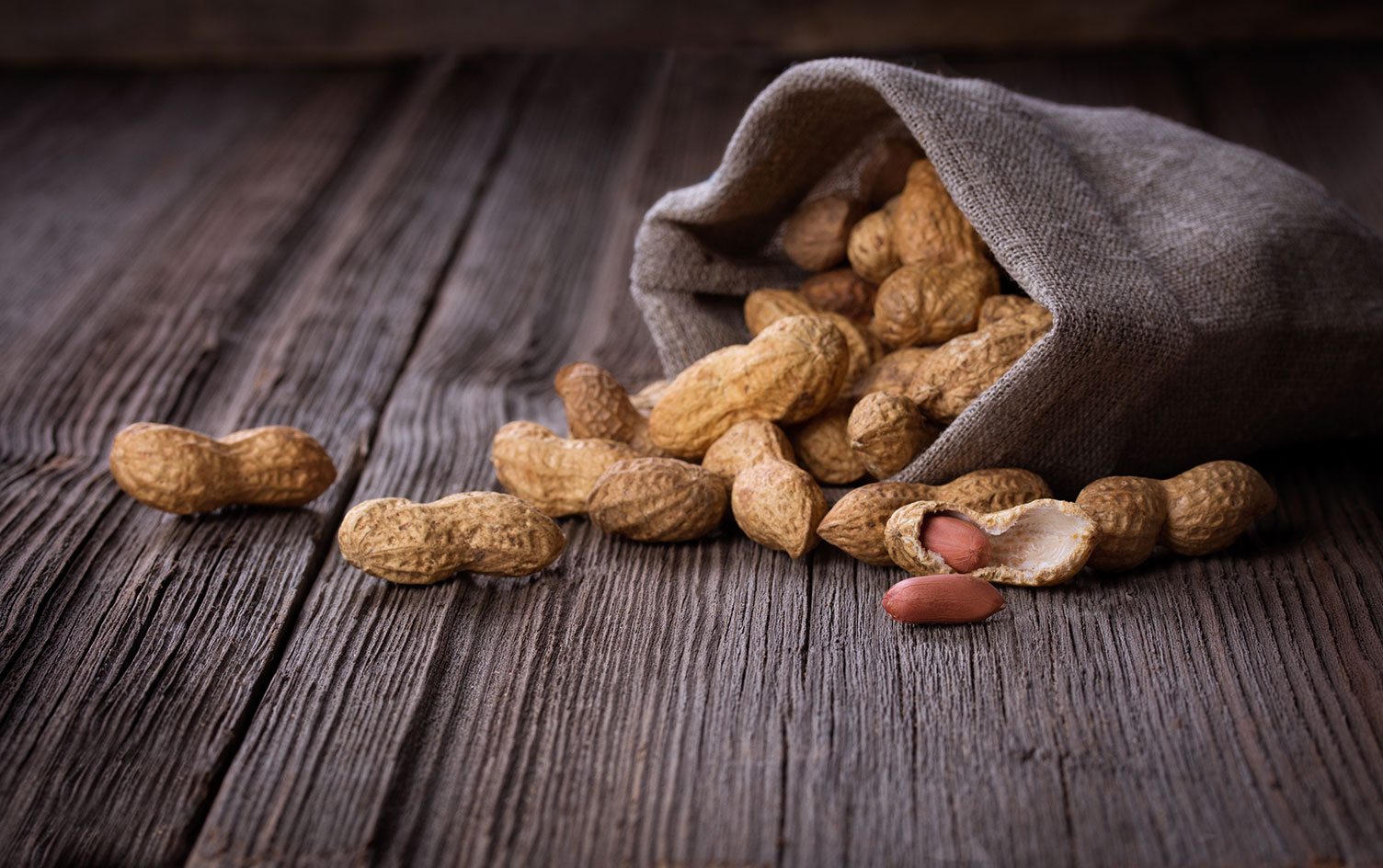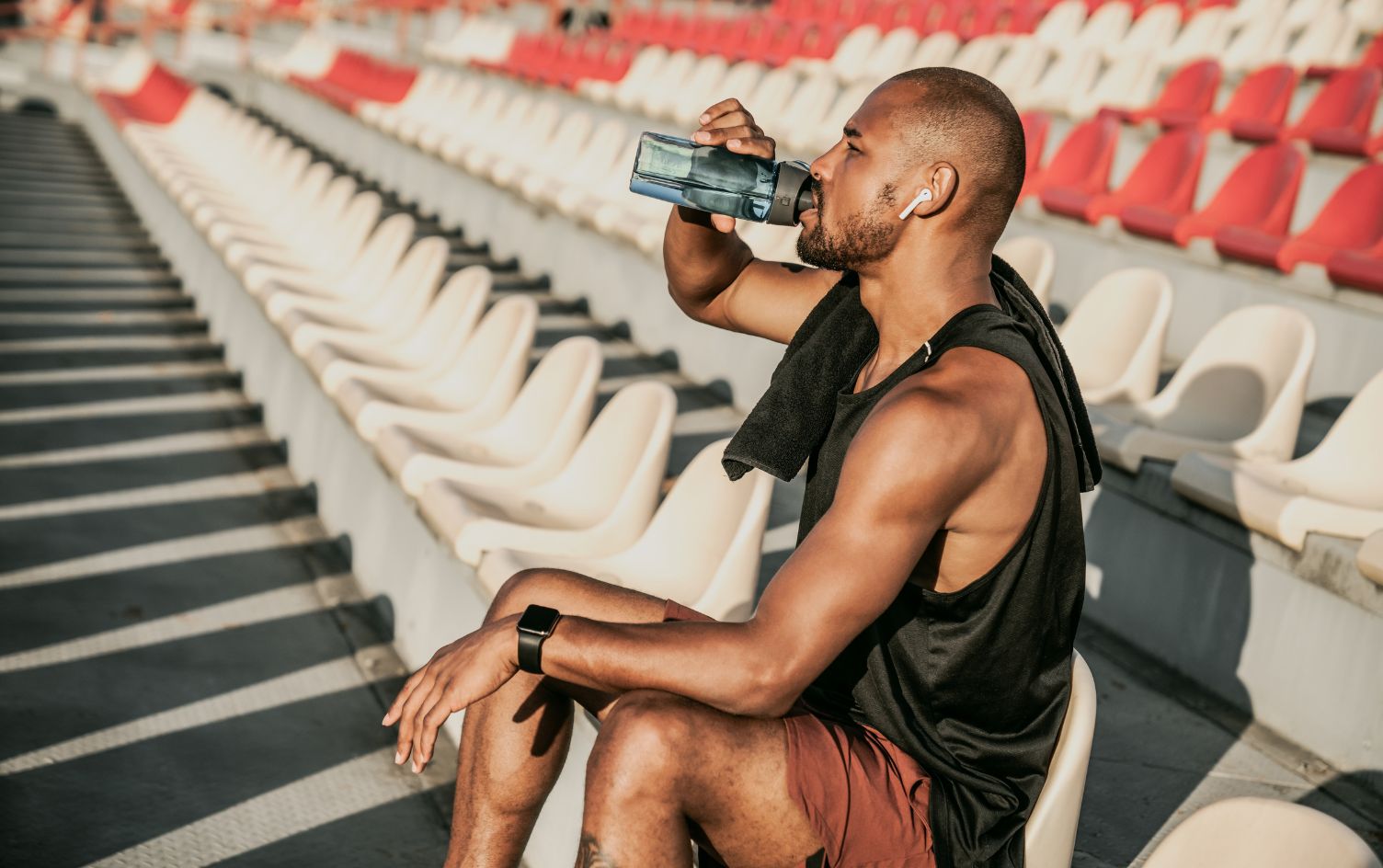Even when you’re crushing it at the gym and your nutrition is on track, sometimes you can get that “food baby” effect of feeling bloated — usually marked by a distended stomach and an overall feeling of uncomfortable fullness. Unless you just finished a competitive eating contest, it’s likely you’re confused and frustrated. Where did all this bulk come from?
Bloating is a common side-effect from a number of potential sources. Here are five to consider when looking for an answer:

1. FOOD SENSITIVITIES OR ALLERGIES
If you’ve never had any food allergies, intolerances or sensitivities in the past, you might figure you’re in the clear. But a recent study noted that almost half of all food allergies appear in adulthood.
Researchers found that the most common food allergy is shellfish, but nut allergies have risen by 260% within the last 10 years. That could be a huge problem if you’re on a diet like Paleo, which relies on nut-based flours for some of its baked goods and snacks.
But even a food intolerance can cause bloating, because it increases inflammation within the digestive system.
2. TOO MUCH MAGNESIUM OR DIGESTIVE AIDS
Most people are deficient in magnesium — a study published in The Journal of the American College of Nutrition found that among U.S. adults, 68% consumed less than the recommended daily allowance of this essential mineral.
That can lead people to try to fill that gap, either by taking supplements or soaking in Epsom salt baths, which also helps soothe tired muscles. But too much too quickly can do a number on your digestive system, and bloating is often one effect, along with gas, diarrhea and stomach cramps.
The same goes for other supplements meant to help your digestion, such as digestive enzymes, bitters and herbs like fennel and milk thistle. Remedies like these don’t need to be avoided completely — just be sure to start with a very low dose and increase slowly over time, advises Carolyn Dean, MD, ND, and author of “The Magnesium Miracle.”
“You can feel worse on magnesium if you take too much, too soon,” she says. “If you take a high dose of magnesium right from the start it’s like using muscles that powered a bicycle and expecting them to power a jet.”
3. EATING TOO QUICKLY
Your mom’s advice to slow down when you eat still holds true. Although certain foods themselves can increase bloating — like beans, Brussels sprouts and artificial sweeteners — downing anything at a rapid pace can be problematic.
That’s because supersonic eating doesn’t give your brain time to send satiety signals to your belly, so you may end up eating more than you need. That can lead to the overly full feeling and “food baby” effect.
You could also be adding more air to your stomach and not chewing as thoroughly as you should. Both can contribute to bloating and gas, and although it’s a temporary condition, it’s enough to make you feel miserable while your digestion works overtime to clear it.
4. HAVING TOO MUCH FIBER
In addition to ramping up slowly on digestive aids, you should also take the same approach with fiber, whether that’s from supplements or increased fruit and vegetable consumption.
It’s easy to be gung-ho about dietary changes and declare “this is my year” for making a big plant-based diet shift. But consider increasing your vegetable amount gradually over time so your body can adjust, advises Maggie Ward, RDN and nutrition director of The UltraWellness Center in Lenox, Massachusetts.
READ MORE > WHAT 33 GRAMS OF FIBER LOOKS LIKE
Also, many people find cooked or fermented vegetables are easier to digest, she says. Incorporate more vegetable-based soups into your diet or do a light sauté or steam before eating to help get your vegetable count way up without a dramatic digestive changeover.

5. DEHYDRATION
What you think of as a food baby may actually be a water baby. Your body has a natural response to even mild dehydration: It holds onto water like crazy.
One of the top pieces of advice for losing weight is to drink more water, and not just because the fluid can make you feel more satiated and less likely to eat junk foods. It’s also because increasing your water intake signals to the body that it can release stored fluid since there’s more hydration coming in.
To make sure you’re absorbing the water more efficiently, eat foods rich in minerals like potassium and calcium, says Tiffany DeWitt, RD, a nutritionist at healthcare company Abbott. These include bananas, coconut water, avocados, Greek yogurt, kale, nuts and spinach.
In general, it’s helpful to play around with different strategies to see what might work best for you. For example, you might notice you bloat whenever you have certain foods like nuts or sugary desserts. Even stress can be a factor, since your fight-or-flight hormone, cortisol, is notorious for banking belly fat and causing bloating.
Try keeping a journal for a few weeks and note when you get especially bloated, since that can help you narrow down possible causes.




